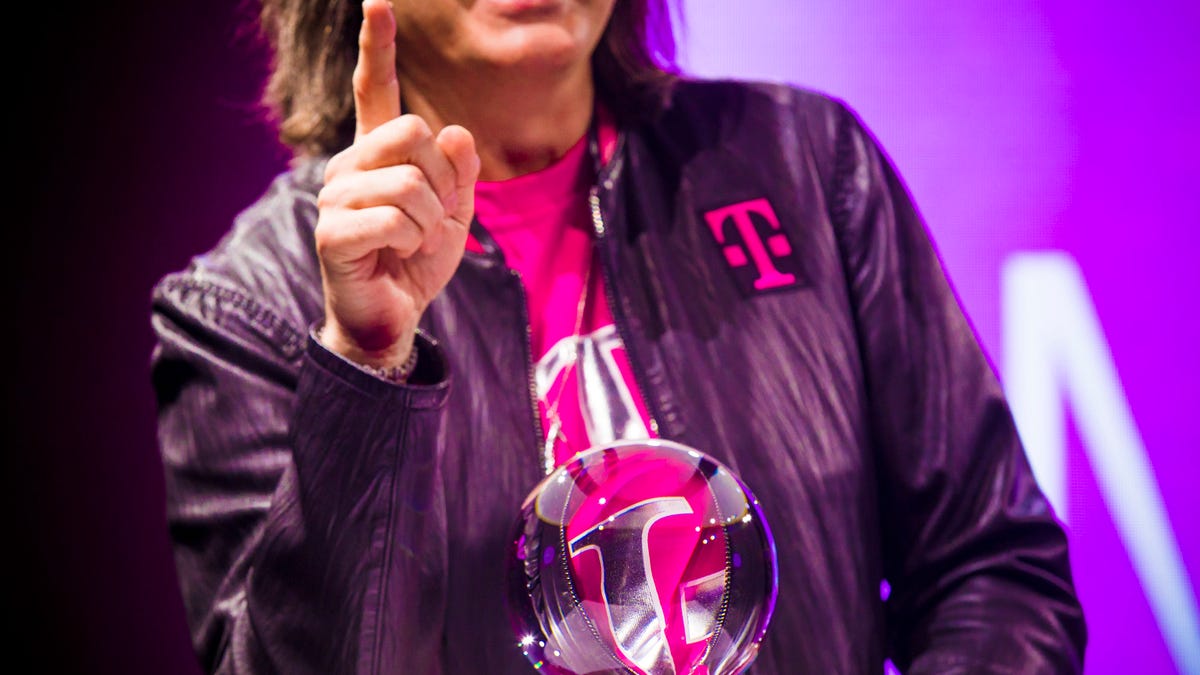Thanks to T-Mobile, unlimited takes center stage again
Once a dirty word in the wireless industry, unlimited data is the new must-have option for carriers. That's good news for consumers.

The wireless industry has fallen in love with unlimited data all over again.
It's happened in just a matter of weeks. In January, T-Mobile went all-in on unlimited, eliminating all other options except for its T-Mobile One plan. Sprint rolled out a promotional $50 unlimited plan for singles, and $90 for a family of five (the rates go up after a year). But the biggest shocker came Sunday, when Verizon reversed years of bashing the concept and introduced an unlimited plan of its own.
In an industry as competitive as this, having an unlimited plan is the new free phone offer, or willingness to buy out your early termination fee.
It's a far cry from seven years ago, when Verizon and AT&T scrapped their unlimited offerings and T-Mobile curtailed its promotional efforts around unlimited. To the carriers, your voracious appetite for streaming video and music was killing their networks, and the idea of letting you loose on your phone became a dirty concept. Sprint, which had been hemorrhaging customers at the time, was the only one willing to give you an all-you-can-eat plan.
Today, unlimited data helps carriers get an edge. Just look at T-Mobile's fourth-quarter results, which the company reported Tuesday. T-Mobile added 2.1 million total net new customers, and 933,000 phone customers who pay at the end of the month -- known as postpaid subscribers -- both numbers outstripping the growth from its three largest rivals.
It wasn't love at first sight between T-Mobile's customers and T-Mobile One. When the company first introduced the plan in August, it drew a lot of flak from people who were miffed that it was eliminating its more affordable, though limited, options. But it let some time go by (and also kept its older plans for a few months), and last month pulled the trigger on the change after offering to pay the taxes and fees on the plans.
While carriers used to think unlimited would have a detrimental effect, T-Mobile saw a financial boost in the fourth quarter. It posted a net profit of $390 million, or 45 cents a share, up from $297 million, or 34 cents a share, a year ago.
Revenue rose 23 percent to $10.2 billion.
Analysts, on average, had forecast earnings of 29 cents a share and revenue of $9.84 billion.
T-Mobile shares rose 1.5 percent to $61.80 in premarket trading.
"These results are proof that doing right by customers is also good for shareholders," T-Mobile CEO John Legere said in a statement.
The modern version of unlimited does have some caveats. T-Mobile and Sprint throttle down the quality of the video stream so it's "DVD quality," or not as good as the HD signal you get on your big-screen TV.
The reaction by Verizon is perhaps the biggest indicator that the unlimited push by T-Mobile and Sprint is having an effect. The company had scoffed at the notion of unlimited, and the commercials still running on television argue that you don't need that much data.
Now Verizon is offering unlimited and HD video and wireless hotspot capabilities.
T-Mobile quickly responded, and on Monday matched the HD video and hotspot offers (you have to manually select the HD option on your phone). It also offered a deal for two lines for $100, better than Verizon's offer of $80 for a single line or $140 for two lines.
Analysts believe that AT&T, which offers an unlimited data plan if you subscribe to DirecTV, may follow suit and offer a standalone unlimited option.
As T-Mobile's Valentine's Day news suggests, love is in the air after all.
Solving for XX: The industry seeks to overcome outdated ideas about "women in tech."
Special Reports: All of CNET's most in-depth features in one easy spot.

